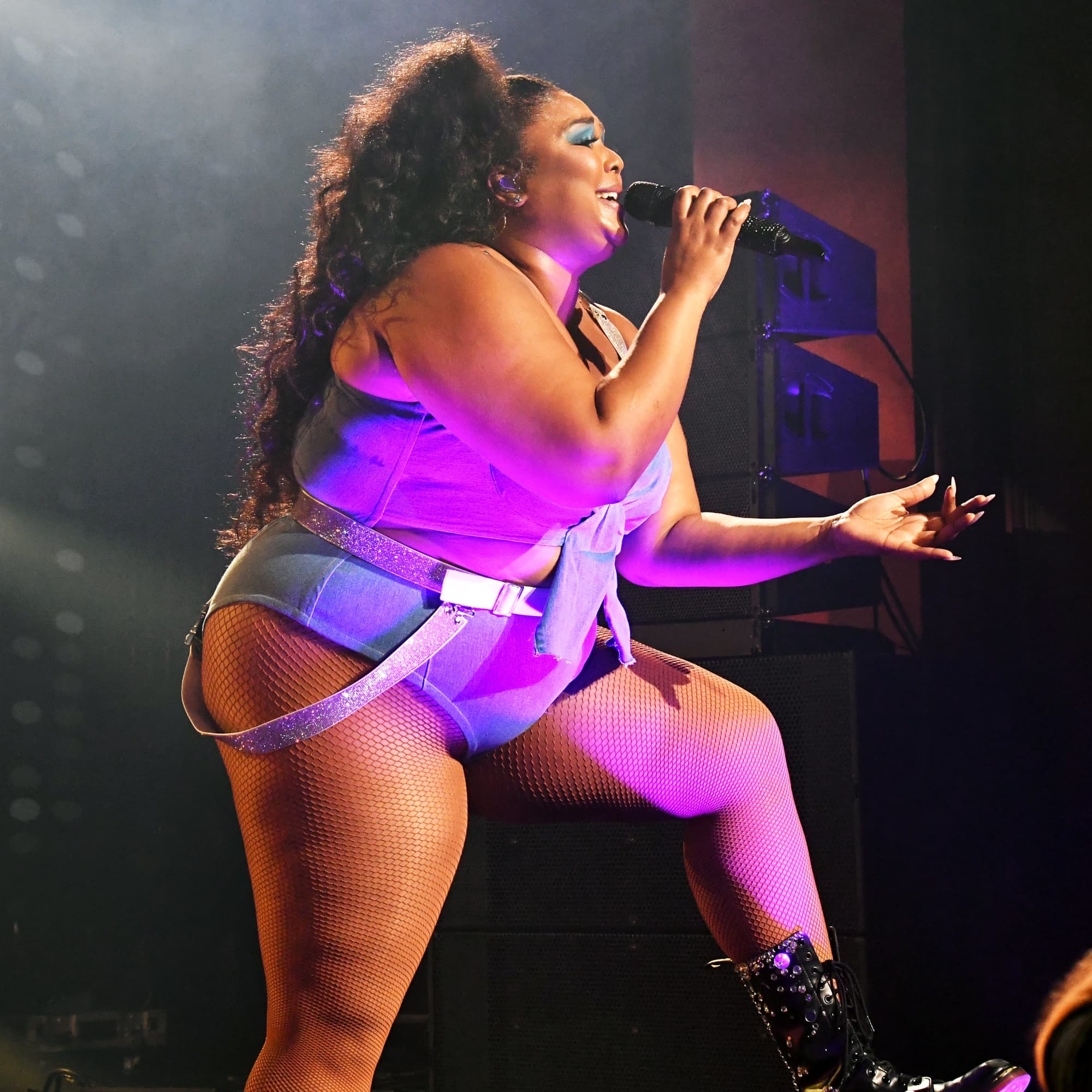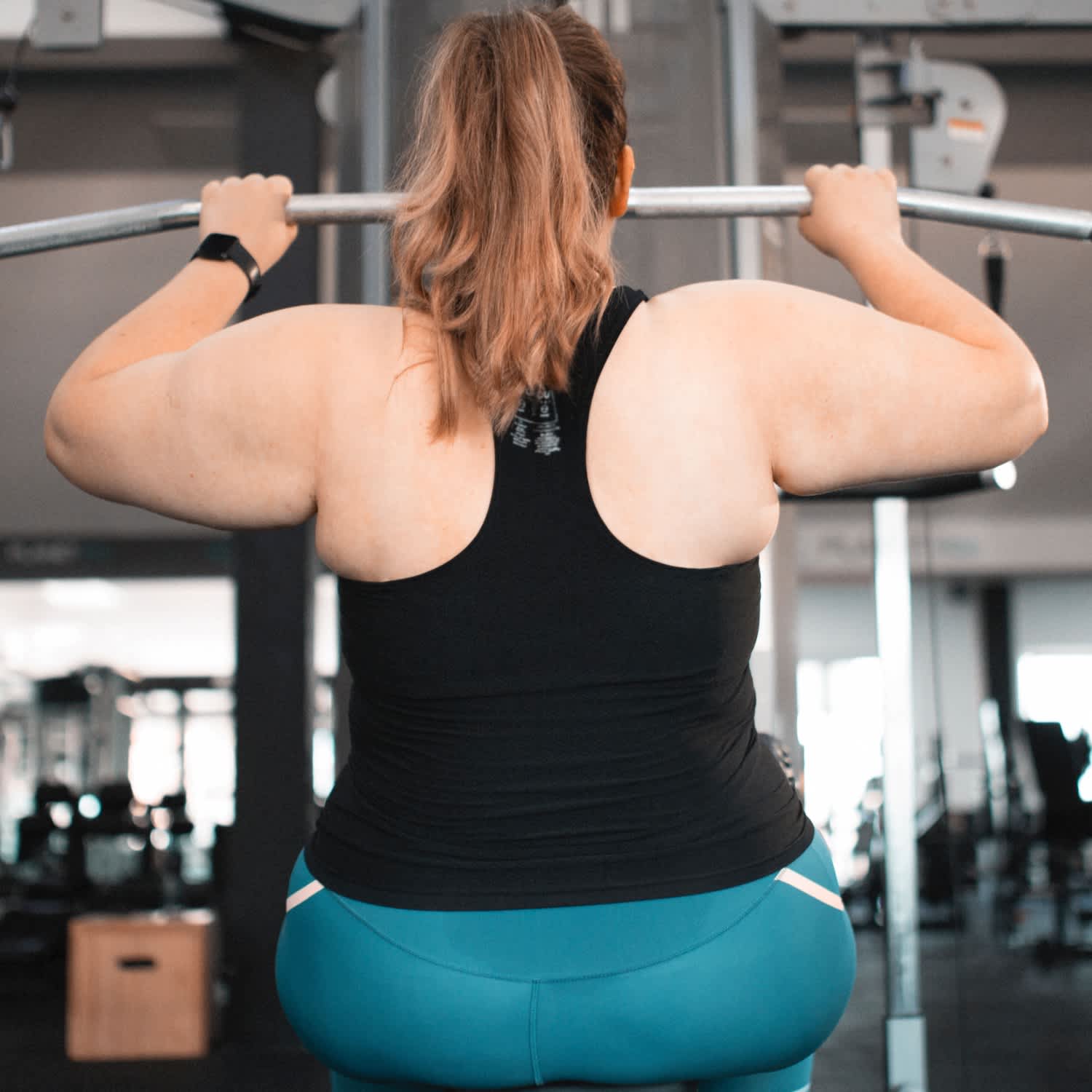
- POPSUGAR Australia
- Fitness
- I'm Constantly Compared to Celebrities Simply Because I’m Fat and Black, and It’s Not OK
I'm Constantly Compared to Celebrities Simply Because I’m Fat and Black, and It’s Not OK

“Oh, wow, Cheyenne! You look just like Lizzo,” my classmate exclaimed as she adjusted her glasses. With a wry smile and folded hands, I agreed, knowing my confirmation of her “compliment” would get her out of my face. I wrote it off as an isolated incident and continued about my day. However, I noticed that more and more people were making the comparison, and after a stranger in a Facebook group mentioned that I “favored Lizzo,” I knew I had to take a step back and unpack this conundrum. Did I really, in fact, look like her?
Putting on my investigative cap, I turned to all corners of the internet, scouring for any signs of resemblance. As a big Lizzo fan myself, I follow her on every social media platform possible, so finding material to compare to my own was a cakewalk. I even went so far as to poll my followers on my Instagram Stories as to whether or not we looked alike, and unsurprisingly, the results showed overwhelming support for us favouring one another. Some of my followers felt it necessary to dissect our faces and tell me which features were the same. After the genetics lesson concluded, I closed my laptop and went back to the drawing board. I knew it was time to do some math, because none of the commentary I received was making sense.
Despite having a big personality and unique characteristics, I’ve always been compared to other Black femmes whose bodies were similar to mine.
Lizzo literally has 99.9 percent more of a social media following than I do. She’s a master flutist, while I played saxophone in my high school’s concert band. She can sing, dance, and perform with high energy, and I can’t even dream of attending a party without keeping my knee braces in my purse. We are not the same. Then, suddenly, it dawned on me. It wasn’t about our uniqueness, despite these qualities being very obvious. It had everything to do with the most obvious observations of them all: the fact that we were both fat and Black.
As a fat, Black woman, I always felt that my existence was never solely my own, and despite having a big personality and unique characteristics, I’ve always been compared to other Black femmes whose bodies were similar to mine. Throughout my life, I was called Raven-Symoné for my “intuitive spirit” and Mo’Nique for my “sense of humor.” Not once was I named as the sole proprietor of my identity.
The relationship between the American public and Black women has always been one-sided. At a time when we thought the country was on the verge of a political point of no return, Black women have, yet again, saved the day. To take it a step further, fat, Black femmes have put in countless hours to benefit others, only to receive golf claps and Canva-generated social media graphics. In the grander scheme of things, our contributions to society have always been required but never honored, a vicious cycle that keeps us both fetishized and feared at the same time.
We, as larger-bodied people, live on the dichotomous edge of our existence where standing up for ourselves is shunned and considered excessive but living and breathing is the truest expression of confidence and bravery. In addition to being praised for simply existing as human beings, we are plagued with comparisons to famous people who happen to be fat and Black and essentially crucified for any hint that we disagree.
While coming to terms with my own experiences, I spoke with curve model La’Shaunae, who said they don’t remember a time when their existence wasn’t judged by others. They were harassed for “being alternative and ‘weird,'” which were pieces of their identity since childhood. At the same time, they received unsolicited warnings about “dying before 25” and why they shouldn’t be proud of their fatness.
Influencer Ashleigh Nicole Tribble also reflected on the many times she has been compared to her contemporaries. “This happens to me all the time and has happened since I was 13 years old,” Tribble said. “First it was Jennifer Hudson, then Oprah, then Queen Latifah. I, of course, was called Precious and Rasputia as insults, and now I am constantly being told I ‘remind’ people of and ‘look like’ Lizzo.”
La’Shaunae’s list of comparisons includes Peaches, Lizzo, and Tokyo Vanity. “I also grew up in the era of Precious and Eddie Murphy in a fat suit playing a sassy, fat, Black woman,” La’Shaunae said. “I always got those as ‘insults’ in school, and still now.” The references to Precious weren’t as offensive because La’Shaunae loved Gabourey Sidibe, the Oscar-nominated actress behind the film’s title character. Still, it was crystal clear that there was a larger issue at hand.
By tokenizing fat, Black celebrities, society not only places a burden on them but also makes them the gold standard for what every fat, Black person should be.
So I say to all y’all who are misinformed or willfully ignorant: stop telling women that we look like Lizzo, Precious, or any other famous folks or caricatures that y’all think we have an affinity for based on size and race. Quite frankly, it’s lazy, reductive, anti-Black, and fat-phobic, and it shows how little people actually know about the intersections of fatness, Blackness, and womanhood and the constituents of this community.
By tokenizing fat, Black celebrities, society not only places a burden on them but also makes them the gold standard for what every fat, Black person should be. The fact that it’s mostly entertainers being elected as a metric for this false sense of social acceptability shows we’re still seen as walking minstrel shows – sources of entertainment to mock and laugh at and not with – and as the mammy who’s forever indebted to the thankless work and servitude of others. People sexualize and appropriate us for consumption, yet we’re never given the power to own our beauty and identity and live as our authentic selves.
It’s truly exhausting living in the shadow of someone else, fetishized and yet invisible, as Tribble noted. The overall consensus is that being treated this way is dehumanizing and annoying, and it takes away from the beauty and individuality of fat, Black femmes. To anyone in our community who may be reading this piece, know that I think you and all fat, Black women are ethereal, important, and powerful, and that despite the existence of these harmful comparisons, they do not invalidate our humanity and inimitable beauty.


